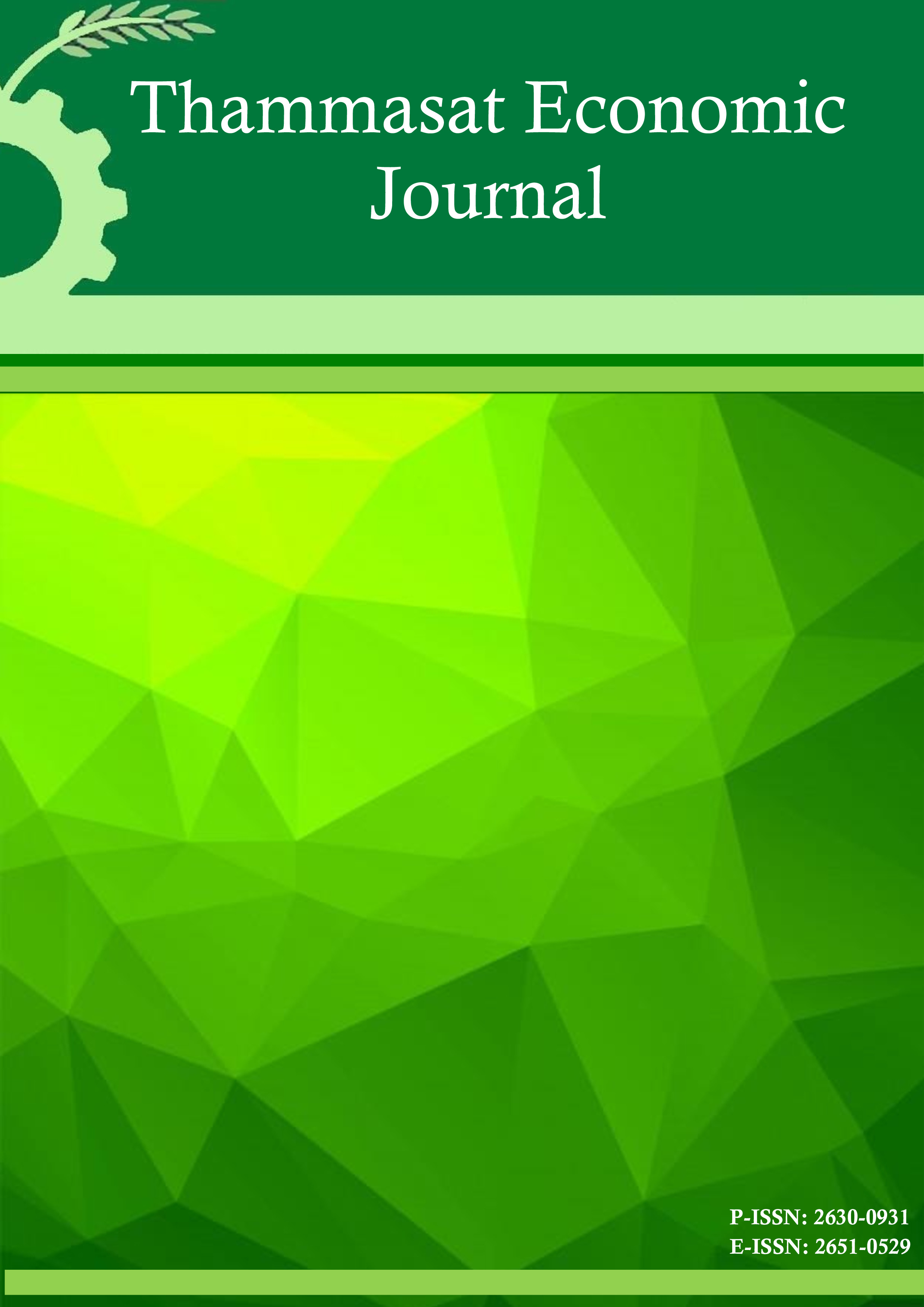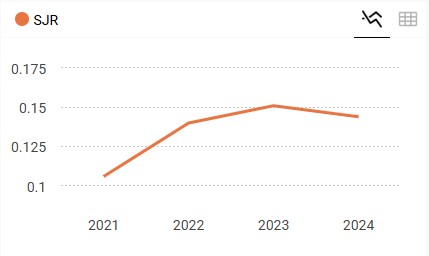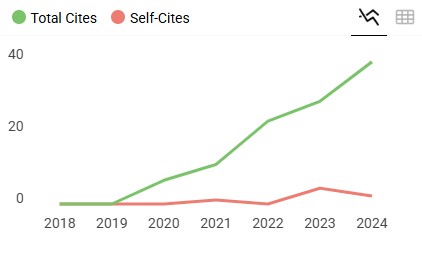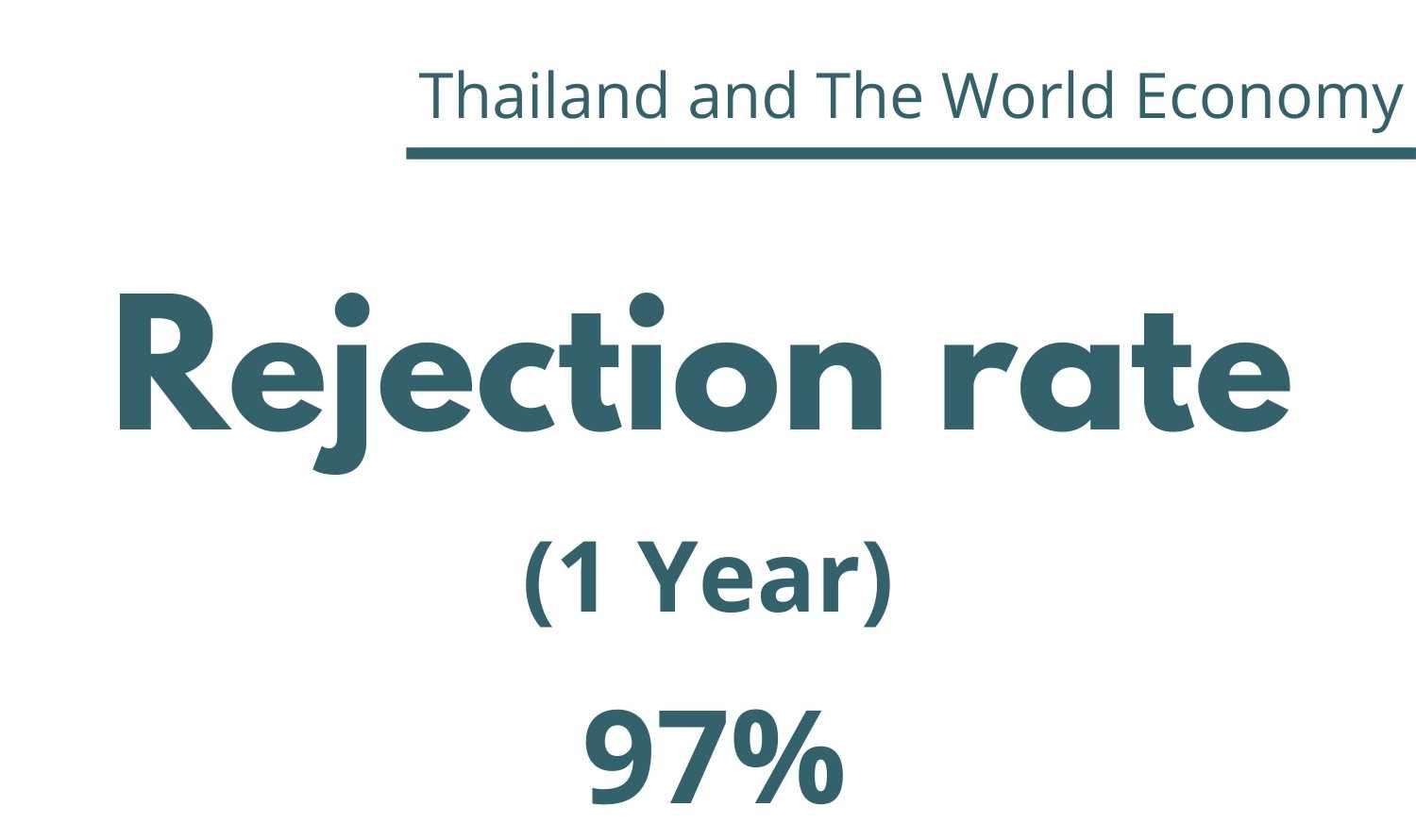การขับเคลื่อนสู่วิถีเกษตรปลอดภัยจากสารพิษ
กรณีการปลูกพืชผัก1
Abstract
The main objective of this study was to investigate the relevant factors that influence the adoption of chemical-safe technology in vegetable production in order to accelerate a shift to food-safety practices. The study was based on survey data on vegetable production in crop year 2005/06 of 300 farmers in Chiang Mai province. The results, using logistic regression analysis, showed that the factors affecting the increase in adoption of chemical-safe technology included farmer being in a group that had marketing function, being trained on chemical-safe technology, number of full-time household agricultural labor, age and education. The probability of adoption was likely to decrease with the area planted to vegetable and the need for hired labor. The promotion of chemical-safe agriculture should focus on marketing of chemical-safe products including reduction of revenue and price risks. Research and development of new alternative technology that could substitute current intensity uses of labor should be put on agenda. Training courses and other self-learning methods about negative consequences of the intensive uses of chemicals and how to apply food-safety production practices should be continuously implemented nationwide. On the consumer side, campaigns to promote demand for food-safety are needed in accelerating farmers’ adoption of chemical-safe practices.
References
2. ประทานทิพย์ กระมล กุศล ทองงาม และ พฤกษ์ ชัยมันตงศิริ. 2547. “ปฏิสัมพันธ์ระหว่างผู้ผลิตและผู้บริโภคเพื่อการพัฒนาการผลิตและการตลาดเกษตรปลอดพิษ” ใน สู่ระบบอาหารที่ปลอดภัย สร้างมูลค่าเพิ่ม และใช้ทรัพยากรอย่างยั่งยืน.รายงานสัมมนาวิชาการ ระบบเกษตรแห่งชาติ ครั้งที่ 3. 9-11 พฤศจิกายน 2547. จังหวัดเชียงใหม่.
3. รำไพประภา มะหะหมัด. 2548. “นวัตกรรมในการจัดการทรัพยากรการเกษตรเพื่อเกษตรอินทรีย์: กรณีศึกษา กลุ่มเกษตรผลิตข้าวอินทรีย์ อำเภอกุดชม จังหวัดยโสธร.” วิทยานิพนธ์ระดับ ปริญญาโท. สาขาการจัดการทรัพยากร. มหาวิทยาลัยเกษตรศาสตร์.
4. วรรณวิมล แพ่งประสิทธิ์ สุชีพ ละกำปั่น และ นงคราญ เรืองประพันธ์. 2540. “ความสัมพันธ์ของการใช้สารเคมีกำจัดศัตรูพืชของการเกษตรที่มีผลต่อการตกค้างของสารเคมีในดินแหล่งน้ำ และกระแสโลหิตเกษตรกร จังหวัดพะเยา.” รายงานวิจัยเสนอ กระทรวง-วิทยาศาสตร์ เทคโนโลยี และสิ่งแวดล้อม. “
5. วรรณา ประยุกต์วงค์. 2540. “ปัจจัยที่มีผลต่อการคงอยู่ในระบบเกษตรกรรมทางเลือกของเกษตรกรในจังหวัดขอนแก่น.” วิทยานิพนธ์ระดับปริญญาโท. คณะเศรษฐศาสตร์. มหาวิทยาลัยธรรมศาสตร์.
6. ศิริชัย กาญจนวาสี ทวีวัฒน์ ปิตยานนท์ และ ดิเรก ศรีสุโข. 2540. การเลือกใช้สถิติที่เหมาะสมสำหรับ การวิจัย (พิมพ์ครั้งที่ 2). กรุงเทพฯ: บริษัท พชรกานต์ พับลิเคชั่น จำกัด.
7. สุภารัตน์ สิทธิชัย. 2548. “ปัจจัยที่มีผลต่อความยั่งยืนทางเศรษฐศาสตร์ของระบบเกษตรอินทรีย์:กรณีศึกษา อำเภอแม่แตง จังหวัดเชียงใหม่.” วิทยานิพนธ์ระดับปริญญาโท. สาขาเศรษฐศาสตร์เกษตร มหาวิทยาลัยเกษตรศาสตร์.
8. สำนักงานเศรษฐกิจการเกษตร โดยความร่วมมือของกรมศุลกากร. ปริมาณและมูลค่าการนำเข้าปุ๋ยเคมีและยาปราบศัตรูพืช. [ออนไลน์] (www.oae.go.th/imp_exp.htm.).
9. Beckmann, Volker and Justus Wesseler. 2003. “ How labour organization may affect technology adoption: an analytical framework analyzing the case of integrated pest management.” Environment and Development Economics. pp. 437-450.
10. Beckmann, Volker, Justus Wesseler and Evi Irawan. 2005. “Does farm labour organization affect adoption of IPM?” Paper presented at conference on Tropical and subtropical agricultural and natural resource management. University of Hohenheim. Stuttgart. Germany. October 11-13, 2005.
11. IPM DANIDA. 2004. การสำรวจผลกระทบต่อสุขภาพจากสารกำจัดศัตรูพืช : ข้อมูลจากเกษตรกร 124 รายในอำเภอแม่วาง จังหวัดเชียงใหม่ ประเทศไทย เดือนพฤษภาคม 2547. รายงานการวิจัย. (IPM DANIDA 64-T). November, 2004.
12. The Health and Environment Linkages Initiative (HELI). Agrochemicals-health and environment-
Overview. [ออนไลน์] (www.who.int/heli/en).










